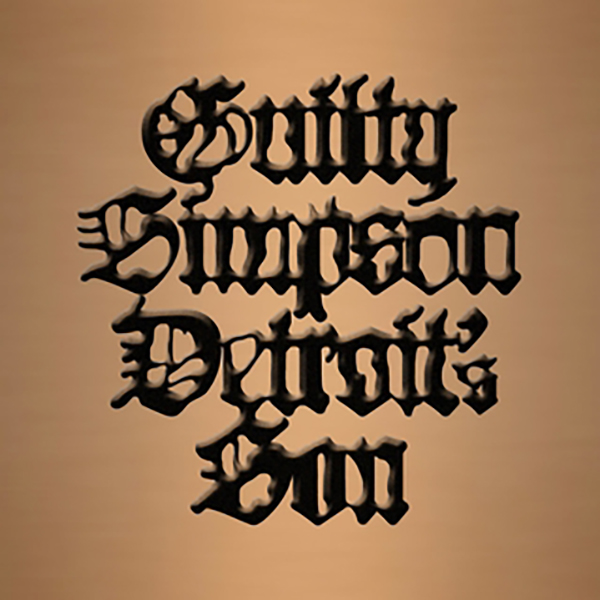Guilty Simpson may have taken a break from his solo career since putting out O. J. Simpson in 2010, but he hadn’t slowed down, releasing five records with five different collaborators in that time. That boundless energy was there from the start, on 2003’s “Strapped,” the Jaylib song that served as Guilty’s debut, and has never once flagged. As it goes with his beloved hometown that he reps hard quite often, talk about a rebound for Guilty is well-intentioned but misguided. When you’ve made a career out of keeping everyone on their toes, you can’t play the part of the comeback kid because you’re too busy being a Renaissance man.
In fact, Guilty revealed in a recent interview that he’d already begun working on his next project, weeks before the official release of Detroit’s Son. That the pre-release news cycle for his first solo album in five years included talk of the future shows that Guilty is not one to rest on his laurels. His refreshing lack of complacency in a musical realm where braggadocio is often a substitute for innovation is another trait he shares with Detroit. The city comes to life on the record, and it speaks through its prodigal son Byron Simpson, whose rapping goes from gruff incantations to no-nonsense parables – making his flow the perfect mixture of pragmatism and hope that typifies the Motor City.
Detroit’s Son is as timeless as it is of its moment. As much as he resists the narrative of “New Detroit,” and all of the attendant associations, you can’t help but sense that Guilty feels reinvigorated. Here is an original giving newcomers to the city a master class on “the D.” There are no textbook examples of life on the streets, though, as befits a rapper who draws upon actual experience when crafting his rhymes. This struggle is real.
Though he’s no longer charting new territory, Guilty has picked up a thing or two from his numerous side projects, which makes Detroit’s Son a vital addition to his oeuvre. The everyman delivery he established on “Strapped” has deepened into a statesman’s oratory. His subject may not be the rule of law, but Guilty lives by a code, nonetheless.
What are Guilty’s tenets, then? On Detroit’s Son, we find out they’re not so different from those of his city and its residents. Guilty brings aboard many of Detroit’s emcees to drive his point home, and even though an Australian producer is at the helm, the arrangements owe a serious debt to Motown. Katalyst’s beats are wigged out and loose-limbed, but they also exercise a sure-footed control that ensures the phantasmagoria doesn’t veer too far from Detroit hip-hop’s roots in boom bap.
Of the seventeen songs that make up Detroit’s Son, the strongest feature guests, not because Guilty needs supporting stars to shine, but because his best assets are set in sharp relief by MCs such as Phat Kat and Elzhi. “Blue Collar,” which showcases the latter, could very well be the heart of Detroit’s Son, while the chaos on “Dirty Glove” shows up again on “Blunts in the Air.” These numbers shout out Guilty’s hometown as much as solo outings such as the title track or “The D.” Guilty Simpson may be Detroit’s son, but he – better than anyone – recognizes that he’s not an only child.
Detroit’s Son closes on one of these collaborative efforts, the lubricious “Power Outage,” featuring Spacek. Like its title, the song cuts out unexpectedly, but the effect is less jarring than it is fitting. When there’s work left to be done, there’s no time for a proper outro. Detroit’s legacy is ongoing, and of its many offspring, Guilty Simpson is paving the way.
Stream Detroit’s Son below:
